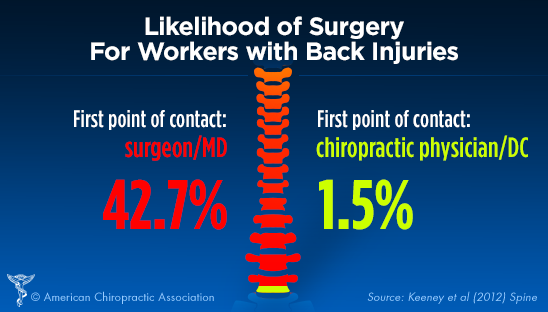Look After Your Back By Uncovering The Effect Of Your Diet On Discomfort Administration-- Discover Which Foods Can Supply Relief And Which Ones To Stay Away From
Look After Your Back By Uncovering The Effect Of Your Diet On Discomfort Administration-- Discover Which Foods Can Supply Relief And Which Ones To Stay Away From
Blog Article
Material Author-Whitley Lykke
When it pertains to handling your neck and back pain, the food options you make can significantly influence exactly how you really feel each day. Picture having the ability to relieve your pain merely by changing what you consume. By recognizing the function of nourishment in back pain administration and recognizing which foods to include or stay away from, you can take proactive steps towards a much healthier and a lot more comfortable way of life. The link between nourishment and back wellness is much more extensive than you may recognize-- let's check out how specific foods can either relieve or intensify your back pain.
Value of Nutrition in Back Pain
Nutrition plays a critical function in handling back pain. Your diet can substantially affect inflammation degrees and total pain levels in your back. Consuming a well balanced diet plan rich in nutrients like vitamins D and K, calcium, magnesium, and omega-3 fatty acids can help reduce swelling and enhance bones, which are necessary for back health.
Furthermore, maintaining a healthy and balanced weight through appropriate nutrition can minimize stress on your spinal column, lowering the danger of back pain.
In addition, particular nutrients like anti-oxidants located in fruits and vegetables can help battle oxidative stress and promote recovery in the body, including the back muscle mass and spinal column.
On the other hand, taking in too much quantities of processed foods, sweet drinks, and undesirable fats can contribute to inflammation and weight gain, exacerbating pain in the back.
Foods to Consume for Back Health
To support a healthy back, including nutrient-rich foods right into your daily dishes is essential. Consisting of foods high in anti-oxidants like berries, spinach, and kale can help in reducing swelling in your back, reducing pain and discomfort. Omega-3 fats discovered in fatty fish such as salmon and mackerel have anti-inflammatory buildings that can benefit your back wellness.
In addition, consuming nuts and seeds like almonds, walnuts, and chia seeds supplies important nutrients like magnesium and vitamin E, which sustain muscle feature and reduce oxidative stress and anxiety. Incorporating lean proteins such as poultry, turkey, and tofu can aid in muscle mass repair work and upkeep, advertising a strong back.
Don't fail to remember to include dairy or strengthened plant-based options for calcium to sustain bone wellness. Last but not least, moisturize with lots of water to keep your spine discs moistened and working optimally. By including these nutrient-dense foods in your diet plan, you can nourish your back and support total spinal health.
Foods to Prevent for Pain In The Back
Go with avoiding processed foods high in sugarcoated and trans fats when seeking relief from neck and back pain. These kinds of foods can add to swelling in the body, which might exacerbate back pain. Say no to sugary treats like candy, pastries, and sweet drinks, as well as convenience food products like hamburgers, fries, and fried chicken that are usually loaded with trans fats.
Additionally, steer clear of foods having high degrees of refined carbs, such as white bread, pasta, and pastries, as they can spike blood sugar level levels and possibly worsen inflammation in the body.
It's additionally a good idea to restrict your intake of foods high in saturated fats, like red meat and full-fat milk items, as they can contribute to swelling. Refined foods like deli meats, chips, and packaged snacks are commonly high in hydrogenated fats and should be consumed in moderation.
austin preferred integrative medicine austin, tx
In conclusion, focusing on your diet regimen and making smart food options can have a significant effect on handling pain in the back. By integrating what does it mean when your back hurts -rich foods like berries, fatty fish, nuts, and lean healthy proteins, and avoiding refined and sweet items, you can help in reducing swelling and support in general back health. Remember, what you eat plays an important role in just how you feel, so make certain to prioritize your nourishment for a healthier back.
